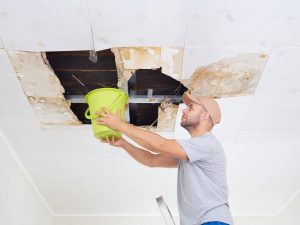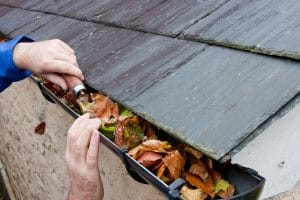Prevent Water Leaks in Your Commercial Building with These Tips
When water damage happens within a commercial building, it can jeopardize a business’s ability to run and function. Excess water can leadLead is a heavy metal that can be toxic to humans, especiall... More to extensive damage within a building, especially if it is not addressed immediately by a company providing emergency water damage restoration services, and it can also trigger moldMold is a type of fungus that grows in damp or humid conditi... More growth which makes the damage worse and puts people at risk of negative health effects. Sometimes the water damage is inevitable, like when the damage is caused by severe natural disasters. However, sometimes the water damage could have been avoided, like when it’s caused by water leaks.

If the leaks go unaddressed, then they can also cause severe damage that requires expensive repairs. These repairs can cause a business to come to an unwanted halt while the damage is restored.
Commercial buildings tend to use larger amounts of water than residential buildings do because of the amount of people who frequent the space. As such, water costs are already more expensive, but they can be even worse if there are water leaks. If the leaks go unaddressed, then they can also cause severe damage that requires expensive repairs. These repairs can cause a business to come to an unwanted halt while the damage is restored.
Most instances of leaks within a commercial building are preventable. Be proactive and use the following tips to help prevent water leaks in your commercial building.
InspectionInspection is the careful examination and assessment of a pr... More
Just as you pay attention to the business that goes on in your commercial building, you should keep an eye on the building itself. Inspect the building’s pipes, plumbing fixtures, building’s structureStructure refers to the framework or components of a buildin... More, and roof to check whether everything is working correctly. If you find problems, wear and tear, or anything abnormal, then have a professional check it out.
Professional MaintenanceMaintenance is the routine care, inspection, and repair of a... More
When you inspect things yourself, you may miss things that a professional wouldn’t. Unlike a professional, you aren’t trained to know the system and to find and fix problems. As such, it’s always a good idea to have a professional conduct regular maintenanceMaintenance is the routine care, inspection, and repair of a... More on your building’s plumbing system.
Regular maintenanceMaintenance is the routine care, inspection, and repair of a... More is important to keep things in working order, and the more often a professional does inspections, the lesser chance there is for problems. Just because you don’t notice anything concerning doesn’t mean everything is okay. It is very possible for leaks to occur in hidden areas and cause extensive damage that may not be noticeable. But with professional maintenanceMaintenance is the routine care, inspection, and repair of a... More, any small issues can be found and fixed before they turn into larger issues.
Outside Cleaning

If your building’s gutters aren’t cleaned on a regular basis, you risk water leaking into the building through its roof or foundation.
If your building’s gutters aren’t cleaned on a regular basis, you risk water leaking into the building through its roof or foundation. Gutters that are clogged and have blockages will prevent water from running through them freely so they can be guided away from the building. Instead, the water will continue to accumulate in the gutter and eventually flow over the edge. The water then settles by the base of the building and may leak into the building’s foundation. Because of this, it’s important to have your building’s gutters cleaned out often.
Repairs and Upgrades
With the vast amount of people who use water fixtures in a commercial building, the fixtures wear out quicker. Some older fixtures and piping also may not be able to handle high-volume usage. Both situations can leadLead is a heavy metal that can be toxic to humans, especiall... More to leaks. As such, you should consider upgrading these water fixtures and pipes to ensure they can handle the high usage and don’t wear out. A plumbing professional can thoroughly inspect the plumbing system in your building and find pipes and fixtures that need to be either repaired or replaced.
By taking these steps, you can help prevent damage caused by water leaks in your commercial building. While these tips are effective for reducing the risk of leaks and water damage, there is still a chance that leaks can occur. If you do find that there’s water damage in your commercial building, then you need to act right away and call a water damage restoration professional to restore the damage. These professionals have the right equipment to extract the water and repairRepair is the act of fixing or restoring damaged property, m... More the resulting damage, as well as find and repairRepair is the act of fixing or restoring damaged property, m... More the source of the leak. You need to act fast though because the longer water damage goes unaddressed, the more the damage will spread, worsen, and will likely leadLead is a heavy metal that can be toxic to humans, especiall... More to moldMold is a type of fungus that grows in damp or humid conditi... More growth.












